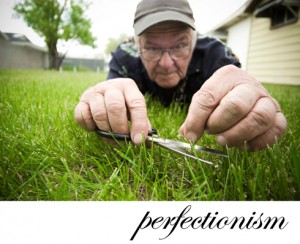 When I was a kid in school, I usually waited until the last minute to write papers or study for exams. Actually, there were times when I took the exam without studying at all.
When I was a kid in school, I usually waited until the last minute to write papers or study for exams. Actually, there were times when I took the exam without studying at all.
In college, I went through entire courses without reading the text books. I went to the first couple of classes and showed up for the final.
There were times when I paid dearly for these habits. Usually, I did just fine.
Years later, I figured out why I procrastinated. By waiting to the last minute to study or start a paper, I had the perfect excuse in case I didn’t do well.
“Yeah, I got a B, but hey, I didn’t really study.”
Stupid? Yep. But that was my way of coping with being a perfectionist. I couldn’t accept the possibility of getting less than a top grade so I gave myself an excuse in case I didn’t.
As I began my professional life, I hate to admit that I still had the tendency to procrastinate. But while I could get away with this in school, I quickly realized that as an attorney, it was unacceptable to deliver anything less than my best.
Losing cases was difficult for me. I often took it harder than my clients. I never did get used to it. How did I learn to cope with less than perfect results? By not focusing on the results at all, but instead, focusing on the process.
We can’t control the verdict. There are too many factors outside of our control. We can’t promise results. All we can do is put our best efforts into our work.
If you focus on the outcomes in life, you will ride an emotional roller coaster. If you focus on doing your job and giving it your best, you are successful no matter what the outcome.
I am successful today because instead of focusing on perfect results, I focus on making progress. Because I do that consistently, I have a lot of successful outcomes. When my results are less than optimum, I accept it because I wasn’t focused on the outcome, I was focused on my work.
If you are a perfectionist (or otherwise emotionally attached to outcomes), change your focus to the work in front of you. Get busy with “the next step” and do your best. When you’ve done that, focus on the step after that.
And when you’re done with a project, don’t dwell on the results, get started on the first step in the next project.







